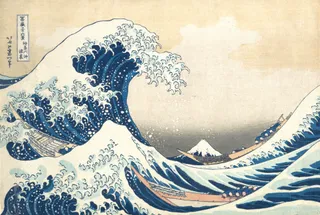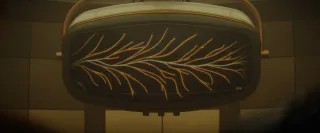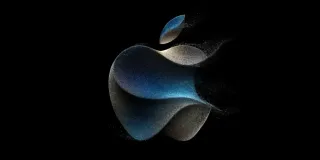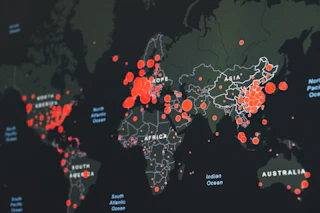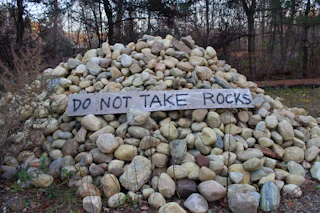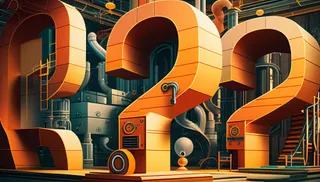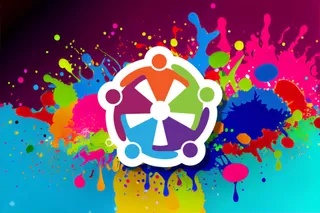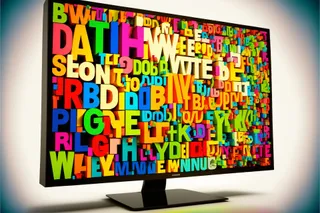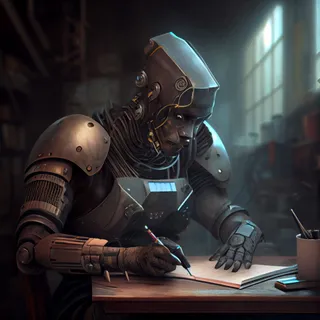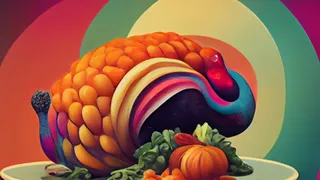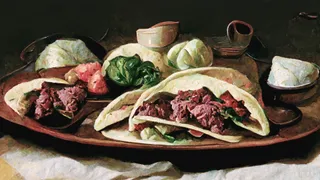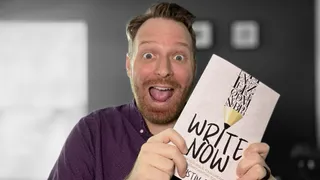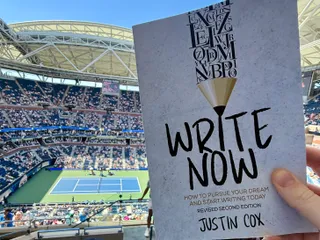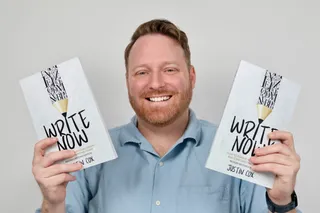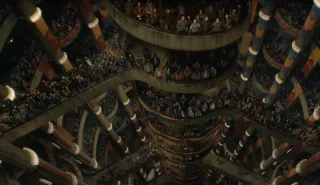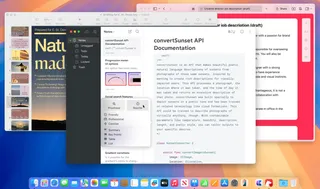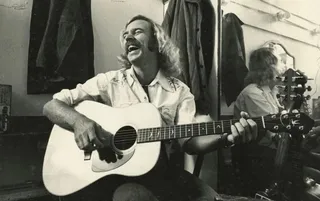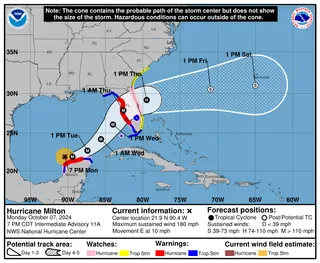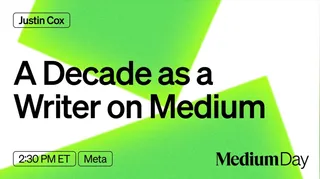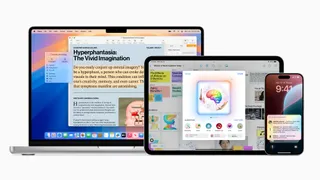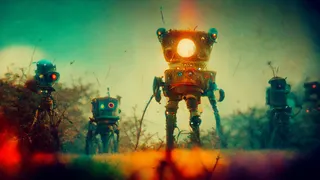Are You Bound Up
This Week In Writing, we explore the concept of root-bound plants and how we can unknowingly follow the same path.
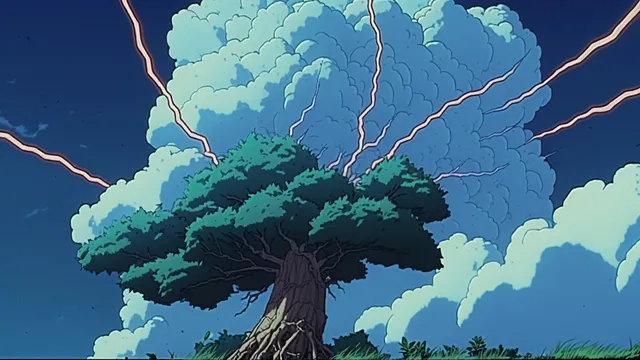
About fifteen years ago, I bought a small tree. It was my first houseplant and came after a short hospital stay. The tree was my way of bringing life into the place after an unexpected time. I’ve moved the tree a few times, and now it lives on my front porch.
This weekend, after waiting way too long, I replanted the tree into a much larger pot. Removing the tree from its existing pot, I realized how incredibly root-bound it was. The tree’s small, thin roots wrapped entirely around the inside of the pot, forming a complete base. Honestly, it was quite a sight to see.
Plants grow to the confines of their environment. In this case, my tree’s pot constricted the space available, so the roots grew around and around, making up for the lacking width and depth. Root-bound plants are unhealthy because they reach their full potential. As I said, it was long past the time I moved this particular tree into a larger environment.
While my hands were in the dirt, breaking up the roots and securing them under fresh, healthy soil, it got me thinking about writing. Like root-bound plants, we eventually only grow to the confines of our environment. Sure, our audience may continue to grow, but ultimately, we reach the bounds of what we’re capable of producing.
Here’s an example to help flesh out what I’m talking about.
There is a specific style of online writing. You know what I’m talking about: delivering relatively meaningless ideas in short, easy-to-read sentences — paragraphs be damned. It’s the style popular on LinkedIn and in many publications on Medium. This is a terrible, uninteresting form of writing. Yet, so many people give in to writing this way.
Why?
I think people get root-bound and stuck in their environment. Writers, particularly those with large audiences, are confined by their capacity — after all, there are only so many ideas and so much time in the world. To feed their content machines, they create simple, quick-to-produce “content.” Because their audiences are large, the type of writing seems popular, and others replicate it. Then, before you know it, the internet is filled with root-bound nonsense.
But here’s the thing. Like my tree, new life comes from a wider environment. Over time, my tree’s roots will expand and thrive in the larger pot until it needs more room. At that point (hopefully before it gets root-bound), I’ll transplant it again.
I’m not advocating that root-bound writers pack up their audience and move to a different platform. Instead, root-bound writers should change their expectations. There isn’t a need to churn out more content — lord knows that with generative-AI writing tools, there’s far more content than we need. Instead, I’m suggesting that writers take a step back and only publish when things are ready*.
Don’t feel pressured to publish daily or even weekly. In fact, don’t feel pressured to publish at all. No one should be setting limits and expectations on your writing except you (unless, of course, you have a paid editor you are accountable to). Instead, write on your terms and on your schedule.
I prefer the routine of a weekly article — it works for me. However, if there’s ever a time I don’t feel inspired, I promise you that I’ll take the week off. I won’t churn something out for the sake of meeting a deadline. The last thing I want is for my writing to feel root-bound.
Have you ever been root-bound? How’d you change your environment?
Speaking Of Generative AI Writing…
There’s only so much we can say about the onslaught of AI tools hitting the market. This week, Bing released and subsequently scaled back their AI search engine’s beta test because people used it for a lot more than search. They claim the tool will eventually integrate with Outlook for emails and blog posts. So, much more than search. Fun!
Tom Scott created YouTube and is scared of where the AI revolution is taking us. I’m not usually one for watching video commentary, but his is worth your time. He’s right; the current glut of AI tools feels a lot like 1999 Napster. It’s safe to say that we’re just getting started with these tools, and it doesn’t seem like anyone knows how they work.
I’m not inherently opposed to AI tools; I use image generators, after all. I am excited to see what the next version of the internet looks likes, but I’m also old enough to know the next version will likely be an ad-fueled hellscape. It’s crucial that we who create do so in an ethical and controlled way. It’s also essential that we maintain ownership and control of our words. But, more on that next week. Maybe.
Speaking Of A Version Of The Internet…
My Writing Community is hosting our first book club! We’re reading The Storied Life of AJ Fikry by Gabrielle Zevin. I’m halfway through the book, and it’s an absolute delight. Our live chat about the book is on March 2, and you can join us by upgrading your subscription to This Week In Writing.
Related Reads
Don’t Take My Word for It
• CraftThis Just In: Personalized recommendations are the new algorithms and the best way to build a true audience.
Why Make Anything if You Don’t Think It Will Be Great?
• CraftThis Week In Writing, we discuss greatness and how chasing it is a possible and noble goal.
Pay People Not Platforms
• PublishingThis Week In Writing, we look at why Substack’s collapse is actually a good thing for paid newsletters.
Let's Make the Internet Personal Again
• Featured • PublishingThis Week In Writing, we look at the once-in-a-generation opportunity to create a new internet filled with fun and originality.
Raising the Bar at the Writing Cooperative
• EditorialThis Week In Writing, we look at changes to our publication standards and what they mean for you.
Advent, Waiting, and the Year of Transitions
• LifeThis Week In Writing, we look back at the year that was and determine what it means for the year to come.
Refilling the Creativity Tank
• LifeThis Week In Writing, we discuss what happens when creativity finds other outlets.
Celebrate Giving Tuesday
• LifeThis Week In Writing, we take a quick break from our regularly scheduled programming to celebrate nonprofit organizations.
It’s Time We Discuss Medium
• PublishingThis Week In Writing, we address the platform that has supported my writing for nearly a decade.
My First Year on Mastodon and the Future of Social Media
• Social MediaThis Week In Writing, we look back at how social media fractured and why it’s a good thing for us all.
The Economics of a Self-Hosted Newsletter
• PublishingThis Week In Writing, we talk about what happens when you eliminate platforms and go after it on your own.
Trick or Treat?
• CraftThis Week In Writing, we talk about pen names and whether they make sense for writers.
A New Era Begins
• PublishingThis Week In Writing, we explore the internet’s current metamorphosis and how you can be part of the revolution.
My History of Blogging
• PublishingThis Week In Writing, we celebrate the blog, explore the pendulum of online writing, and double down on quality.
An Update on Spam Submissions
• EditorialThis Week In Writing, we talk about spam submissions to The Writing Cooperative and look at some of your thoughts on being called AI.
Would You Want to Know if I Thought Your Writing Sounded Like AI
• EditorialThis Week In Writing, we talk about submissions to The Writing Cooperative and how to avoid false accusations.
How I Feel About Engagement Numbers
• PublishingThis Week In Writing, we discuss what engagement means and if I get discouraged by a perceived lack thereof. Plus, a look at the future (again).
My Writing Is About Building Community
• PublishingThis Week In Writing, we highlight some of the people I’ve met writing online and answer some of your questions.
It’s Time for a Fresh Start
• PublishingThis Week In Writing, we talk about new Apple products, home renovations, and changes to the newsletter.
Choose Your Own Design
• PublishingThis Week In Writing, we explore the wonderful world of blogs, where writers truly get creative.
Expanding Universes Make Better Stories
• CultureThis Week In Writing, we look at how worldbuilding is an essential part of epic storytelling.
Your Questions Answered
• EditorialThis Week In Writing, we recap a successful Medium Day and address some of the questions I didn’t have time to answer.
Saving Frequently Isn’t The Only Way To Backup Your Writing
• CraftThis Week In Writing, we take a hard lesson from the latest Twitter/X hijinks. Plus, we look at what “human writing” means.
MIT Says ChatGPT Improves Bad Writing, But At What Cost?
• AIThis Week In Writing, we explore how ChatGPT and Grammarly are making us all sound the same.
Do CTAs Even Work Anymore?
• PublishingThis Week In Writing, we explore the “necessary evil” of calls to action and ask if they are any better than tacky banner ads.
AI Is Now Everywhere
• AIThis Week In Writing, we talk about Google’s new AI plan, what it means for writers, and why resistance is futile.
My Ghostly Strategy: Avoid the Graveyard
• PublishingThis Week In Writing, we fully explore how I’m building Ghost into a self-hosted content hub and how you can too.
Another Platform Collapses
• Social MediaThis Week In Writing, we talk about Reddit and what it means for centralized communities moving forward.
The Problem With Creative Entitlement
• AIThis Week In Writing, we explore how AI tools amplify the sometimes problematic relationship between creator and consumer
My Return to Journaling Failed Miserably
• LifeThis Week In Writing, we talk about good intentions, rumored Apple products, and buying domain names
Let's Talk About Numbers
• PublishingThis Week In Writing, we talk about the importance of metrics and why I barely pay attention to mine.
ChatGPT, the Writer’s Strike, and the Future of Content Writing
• AIThis Week In Writing, we explore a middle-of-the-road approach to ChatGPT and the future of writing
BlueSky, Mastodon, and Notes; Oh, My!
• Social MediaThis Week In Writing, we talk about all the “Twitter Alternatives” and what makes the most sense for writers.
How Not To Approach an Editor
• EditorialPlus, here is an update on my participation in Medium’s Boost program and how not to approach an editor.
We Have to Talk About Platform Proliferation
• Social MediaThis Week In Writing, we ask why no platform is content on doing one thing well and instead want to do all things poorly.
On Tennis and Writing Breaks
• LifeThis Week In Writing, I discuss my prolonged break from daily writing and follow up on last week’s Substack article.
We Have to Talk About Substack
• Featured • PublishingThis Week In Writing, we talk about Diffusion of Innovation Theory and dying platforms.
I Don't Want to Talk to You on WhatsApp
• Social MediaThis Week In Writing, we address an impersonation issue, talk about scammers, and settle a Mastodon issue.
Stop Creating Quantity and Start Creating Quality
• EditorialThis Week In Writing, we discuss Medium’s new Boost program and why the vast majority of submissions lately have been atrocious.
1903 Days...
• BurnoutThis Week In Writing, we talk about writing streaks and why letting them go is okay.
You Have Questions, I May Have Answers
• CraftThis Week In Writing, we celebrate International Question Day by listening to Selena Gomez. What does that have in common? Keep reading!
AI Is Coming for Content Creators
• AIThis Week In Writing, we look at how AI is changing the content landscape and why that might be a good thing.
The Era of Centralized Platforms Is Over
• Featured • PublishingThis Week In Writing, we discuss whether you should still own a website if you publish on Medium or Substack.
Are You Bound Up
• GrowthThis Week In Writing, we explore the concept of root-bound plants and how we can unknowingly follow the same path.
How Will History Remember Your Writing?
• CraftThis Week In Writing, we talk about the magic found in old books
How I Come Up With Writing Topics
• CultureThis Week In Writing, we explore topic generation while celebrating the best damn band in the land!
Introducing My Writing Community!
• EditorialA new way to connect with writers, discuss your interests, and receive feedback on your creative endeavors.
Are You Begging for Eyes in the Attention Economy
• Featured • PublishingThis Week In Writing, we explore the internet’s move away from the attention economy and how writers can make the web more personal
Use Better Words to Be More Inclusive
• CraftThis Week In Writing, we talk about words to avoid in 2023, a special offer from a friend, and Medium joining Mastodon
What Biases Do You Bring to Your Projects
• CraftThis Week In Writing, we explore biases in our creative pursuits and how those biases can translate to AI-generated content.
Welcome to 2023. Now Take A Nap.
• CraftThis Week In Writing, we kick off a new year with a chat about goals, self-care, and naps.
I Created a New Language in 5th Grade
• LifeThis Week In Writing, we explore our digital legacies, discuss permanence, and close out the year with something new.
What’s the Last Book You Read
• Crafthttps://writingcooperative.com/whats-the-last-book-you-read-5265b44e180e
Success Comes to Those Who Work for It (Usually)
• CraftThis Week In Writing, we talk about success and perseverance through the lens of Simu Liu’s memoir. Oh, and AI writing, too.
Would You Burn Your Entire Archive
• CraftThis Week In Writing, we contemplate throwing out our leftovers and slimming down our digital presence.
Give Thanks to Our AI Overlords
• AIThis Week In Writing, we celebrate Thanksgiving and dive into the ever-improving AI-generated content.
Do You Procrastawrite
• CraftThis Week In Writing, we talk about procrastination and everything we do instead of writing.
Let’s Talk About Money
• FreelancingThis Week In Writing, we talk about earning money as a writer online and check in on NaNoWriMo.
Happy Author’s Day
• CraftThis Week In Writing, we kick off NaNoWriMo by celebrating all the author’s out there, whether published or not.
You’re Invited
• CraftThis Week In Writing, we prepare for NaNoWriMo with a special invitation, but first, we talk about She-Hulk!
Get Ready for NaNoWriMo
• CraftThis Week In Writing, we prepare for National Novel Writing Month (NaNoWriMo) with encouragement and a special offer.
How Do You Deliver Joy
• CraftThis Week In Writing, we discuss how to find your joy and how to spread joy to others.
Let’s Taco ‘Bout Giving the Reader More
• CraftThis Week In Writing, we celebrate National Taco Day by discussing ways to hook the reader and give them more to chew on.
Stop Making Excuses and Write
• CraftThis Week In Writing, we explore excuses we use to avoid writing and discuss methods to get out of our own way.
Are You Registered To Vote?
• LifeThis Week In Writing, we take a quick break from our regularly scheduled programming to encourage you to vote.
Did You Hug Your Boss Today?
• CraftThis Week In Writing, we explore inappropriate workplace dynamics and how that applies to writers.
How Do You Fight Procrastination?
• CraftThis Week In Writing, we explore the bane of most writers’ existence: procrastination. And, yes, it’s different from Writer’s Block.
What Word Makes You Cringe?
• CraftThis Week In Writing, we talk about cringe-worthy words and give a nod to puns, courtesy of Letterkenny.
This Is a Bit Revealing
• CraftThis Week In Writing, I reveal my inner nerd by sharing a personal project. Plus, we look at character creation.
The Stats I Track
• CraftThis Week In Writing, we explore which stats are necessary to track and which are safe to ignore.
Do You Color Outside the Lines?
• CraftThis Week In Writing, we explore taking our writing to places the reader doesn’t expect, like in the film Everything Everywhere All At Once.
Writing Is Exploring The Unknown
• CraftThis Week In Writing, we explore all-or-nothing thinking and learn how to live in the unknown within our work and ourselves.
When Writing Gets Controversial
• CraftThis Week In Writing, we explore the controversial origins of the bikini and how our writing can stoke controversy of its own.
Make Your Writing Space More Comfortable
• CraftThis Month In Writing, we explore simple ways to improve your writing space and the best advice published in June.
You Should Be on Twitter
• Social MediaThis Week In Writing, we explore how I’m shocked how many writers don’t take advantage of Twitter’s potential for writers.
Yoga for Writers
• CraftThis Week In Writing, we get out of the heat and explore yoga as a wellness strategy for creativity and mindfulness.
My Best Advice for Writers: LIVE!
• CraftNext week, I sit down with Sinem Günel to discuss writing, my book, and how you can stay encouraged even when life gets in the way.
You Need a Vacation
• CraftThis Week In Writing, we talk about the importance of pausing because you can’t write all the time.
I Wrote a Book!
• Featured • PublishingThis Week In Writing, I announce my new book and provide an update on the Flash Fiction Writing Challenge!
Can You Write Pulp Fiction?
• CultureThis Week In Writing, we celebrate classic pulp fiction and invite you to explore potentially untapped forms of creativity.
Are You Turning Your Tassel Today?
• CraftThis Week In Writing, we celebrate National Graduation Tassel Day by exploring how we level up as writers.
Is Censorship Changing Your Language?
• Social MediaThis Week In Writing, we explore algorithm-driven ‘anglospeak’ and how words and their meanings change over time.
How You Defined Community
• EditorialThis Week In Writing, we reflect on the meaning of ‘community’ by reading through your responses.
Let’s Get Acquainted
• EditorialThis Month In Writing, I introduce myself and explore the future of The Writing Cooperative.
Are You Organized?
• CraftThis Week In Writing, we look at digital organization techniques to keep all of our drafts, research, and ideas safe.
Define: Community
• EditorialThis Week In Writing, we explore the meaning of community and how writers can better connect with each other.
When’s the Last Time You Visited the Library?
• CraftThis Week In Writing, we celebrate and honor every community’s pillar: the local library and library workers.
Does Your Writing Live Long and Prosper?
• CultureThis Week In Writing, we celebrate First Contact Day by exploring one of the best genres out there: sci-fi!
Do You Need a Day Off?
• CraftThis Week In Writing, we celebrate National Goof Off Day by exploring ways to take a break from writing (and yes, you can take a break).
Beware the Ides of March?
• CraftThis Week In Writing, we reclaim the Ides of March and turn it into a day to celebrate and lift writers worldwide.
Celebrate International Women’s Day With These Writers
• CraftThis Week In Writing, we celebrate International Women’s Day but uplifting and honoring our favorite women authors.
It’s Writing Pancake Day!
• CraftThis Week In Writing, we celebrate Fat Tuesday by cleaning out our pantry of darlings. What are you letting go of?
Let’s Talk About Tags
• PublishingThis Week In Writing, we explore Medium’s new design, selecting the best tags, and how to be humble as a writer.
When Did You Start Writing?
• CraftThis Week In Writing, we emphasize that age is but a number when it comes to writing. You can start at any point in your life.
Why Do You Write?
• CraftThis Week In Writing, we reflect on Dickinson and explore an essential question for every writer: why do you write?
Do you need to get up again?
• CraftThis Week In Writing, we celebrate National Get Up Day by refocusing on our priorities and building healthy writing habits.
Wondering Where Our Newsletter Went?
• EditorialThis Month In Writing, we’re brewing a mug of hot chocolate to enjoy while reading some of your best stories.
Feeling Pressure to Write?
• CultureThis Week In Writing, we explore the life and writing lessons about pressure and perfection from the movie Encanto.
How Big Is Your Diction?
• CraftThis Week In Writing, we break out the thesaurus to compare diction size and explore the power of unique words.
How Do You Write at Work?
• CraftThis Week In Writing, we celebrate Poetry at Work Day by exploring ways to write while on the job without getting distracted (or fired).
Why Make Anything if You Don’t Think It Will Be Great?
• CraftThis Week In Writing, we discuss greatness and how chasing it is a possible and noble goal.
Are You Bound Up
• GrowthThis Week In Writing, we explore the concept of root-bound plants and how we can unknowingly follow the same path.
How Will History Remember Your Writing?
• CraftThis Week In Writing, we talk about the magic found in old books
How I Come Up With Writing Topics
• CultureThis Week In Writing, we explore topic generation while celebrating the best damn band in the land!
Introducing My Writing Community!
• EditorialA new way to connect with writers, discuss your interests, and receive feedback on your creative endeavors.
This Just In: 500-Year Flood Hits Central Florida
• LifeHurricane Ian dumped a half-year’s worth of rain in 24 hours and Central Florida’s lakes couldn’t keep up. But, is the statement true?
Are You Bound Up
• GrowthThis Week In Writing, we explore the concept of root-bound plants and how we can unknowingly follow the same path.
How to Win Everything This Year
• GrowthDo you want to know how to win everything this year? Sure, we all do. The answer is a lot simpler than you realize.
How Do You Give Back?
• GrowthThis Week In Writing, we celebrate Giving Tuesday by encouraging you to give back and support your community.
Finding Unconventional Growth Opportunities
• GrowthLiving our best lives requires continual refinement, growth, and education. How are you investing in yourself?
Reflect On The Past To Enhance Your Creativity
• GrowthReflect on three questions to focus your memories, retain details, and take your creative projects from good to extraordinary.
I’m a Farmer Now
• GrowthAfter living the first 36 years of my life not farming, I’m trying something new.
I Paid Off My Student Loans and I Feel Nothing
• GrowthLearn about the emotional journey of paying off student loans from someone who's been there.
My name is Justin, I’m 33 years old, and I have no idea how to dress myself.
• GrowthLearn about a man's journey toward finding his own style and becoming a real adult.
Creative Burnout and Why I’m Pausing The Writing Cooperative After 12 Years
• Featured • EditorialAlysa Liu's story is relatable and the timing is impeccable.
What Bad Bunny Gets That NBC Doesn’t
• CultureThis Just In: NBC hosted the Olympics, the Super Bowl, and Bad Bunny’s halftime show on the same night, so why was their messaging so poor?
AI Is Not an All or Nothing Choice
• Featured • AIThis Just In: AI use isn't a moral binary. There's a practical middle path for writers.
It’s the End of the Year as We Know It (and I Feel Tired)
• LifeThis Just In: It’s time to look back at the year that was and set up some hopes and dreams for the year to come, or something like that.
Unchecked Writing
• AIThis Just In: I stopped using Grammarly; have you noticed? Plus, a deeper exploration into AI writing and my friend the em dash.
The Dream of EPCOT
• LifeThis Just In: Walt Disney’s community of tomorrow is a celebration of humanity and a prototype for how we should live. Maybe we should listen.
It’s Not All About the Benjamins
• PublishingThis Just In: Yet one more thing that Diddy was wrong about.
The Internet Was Doomed From the Start
• Featured • PublishingThis Just In: Maybe it’s time to rethink the entire internet.
Want to Write a Novel in November?
• CraftThis Just In: NaNoWriMo may be dead, but writers have two new options to help hit those writing goals.
Answers to a Few Questions
• CraftThis Just In: There were fewer questions than I anticipated, but I will answer them nonetheless.
What Questions Do You Have
• CraftThis Just In: I won’t be participating in Medium Day this year, but I still want to keep the spirit alive. Ask me anything.
What I Did Different With This Book
• PublishingThis Just In: Launching a second edition wasn’t as simple as I thought it’d be, and I learned some lessons along the way.
Introducing Write Now’s Revised Second Edition!
• Featured • PublishingThis Just In: You can now access everything I’ve learned writing online over the last two-plus decades. Are you ready for it?
Can We Talk About Comments?
• PublishingThis Just In: Hearing from readers is a lot of fun until you start to get spammed with bots and AI nonsense farming for attention.
Let’s Talk About Tools
• TechThis Just In: There’s no single tool that can do everything and it’s extremely frustrating.
Battle of the Book Builders
• TechThis Just In: I tried to format my book using Vellum and Atticus. Instead, I learned something about app design and limitations.
Does My Journal Need a Backup
• TechThis Just In: I took a lot of your suggestions to heart and gave Obsidian a try. What I found was a bigger question.
Journals Aren’t Forever
• TechThis Just In: After over 13 years, I’ve deleted the Day One journal app. Here’s what it helped me realize about software subscriptions.
This One Has No Direction
• BurnoutThis Just In: Tried, drained, and a little burnt out isn’t exactly the best time to focus on your writing, but it’s why you do it anyway.
AI Exposes the Deeper Rifts in the Writing Industry
• AIThis Just In: Monetization turns passions into sweatshops and AI is making it worse.
The Cost of Rebellion
• Featured • Social MediaThis Just In: Rebellions are built on hope, but they require individual sacrifices for collective improvement.
Abuse of Power Comes for Nonprofits
• LifeThis Just In: Wikipedia’s 501(c)(3) tax exemption is threatened, but not by the IRS.
How to Move to Ghost In 2025
• PublishingThis Just In: Own your own publication by launching a website running Ghost. It’s not as difficult as it sounds.
AI Killed NaNoWriMo
• AIThis Just In: The writing month challenge may be dead, but there’s a new option to keep writers going.
The Age of Reaction
• Social MediaThis Just In: We’ve fallen into a dramascroll trap that will be very difficult to climb out of, but it isn’t impossible.
A Few More Thoughts on Copyright
• AIThis Just In: The history of copyright might be fraught, but it exposes a bigger issue when creating online.
Copyright in the Age of AI
• AIThis Just In: What does copyright do and does it even matter anymore?
Tapestry Is Weaving the Future Web
• TechThis Just In: The Iconfactory’s smash new app is a return to the web’s roots and where we all need to head.
The Cost of Simplification
• PublishingThis Just In: Owning your own platform can be complicated and sometimes simplifying can be costly.
A Bit About Me
• Featured • This Just InThis Just In: I answer interview questions that cover my views on writing and more.
The Perils of Personal Platforms
• PublishingWhat does it actually mean to leave the world of commercial platforms behind?
Update Those Mute Filters
• Social MediaThis Just In: Let’s collectively scream into the infinite abyss, find ourselves, and make the world better.
It’s Time to Rebel from Mass Market Social Media
• Featured • Social MediaThis Just In: IT is the villain in Silo. We should learn from those in the Down Deep and rise up.
The Forthcoming First Amendment Fight
• CraftThis Just In: So-called defenders of free speech are taking office, and we’re all in trouble. Plus, more predictions for 2025.
What Happens When Everything is Paywalled
• PublishingThis Just In: Wealth is becoming a determining factor in the type of World Wide Web you can access. And I’m not talking about speed.
Platforms Are Getting Much Worse
• PublishingThis Just In: Platforms want us to know exactly who controls the internet. It’s not us, but it can be!
Is Reading Dying
• CraftThis Just In: AI summaries and the pivot to video are bad news for the written word.
Empire Strikes Back Isn’t the End of the Series
• Featured • LifeThis Just In: Last week sucked, but there is always hope.
Are Apple’s Writing Tools the Right Stuff
• AIThis Just In: Apple Intelligence offers the boring version of AI I’ve hoped for, but is it helpful for writers?
This One’s for the Fans
• CultureThis Just In: Jimmy Buffet gets the due he deserves and shows what creative passion is all about.
When Creating Stops Being Fun
• CraftThis Just In: knowing when (and how) to hit delete is important for every creator’s sanity.
We Shouldn’t Have Taken Milton’s Stapler...
• LifeThis Just In: Hurricane Milton is becoming a real problem, and I’m exhausted.
When Gamification Goes Awry
• TechWriting days, health rings, Duolingo… there are more streaks than time.
New Phone Who Dis
• TechNew technology fuels a desire to create but can also be overwhelming and lead to unmet expectations.
Hitting the Reset Button
• PublishingLLM scraping is a virus eating up the internet, but I’m done fighting. Instead, I choose open access and human connection.
Advice for Medium Writers Choose Publications Wisely
• PublishingJust because you CAN submit to a specific publication doesn’t mean you SHOULD.
Medium Day 2024: Questions I Didn't Have Time to Answer
• PublishingA collection of all the questions I didn’t have time for during my 30-minute Medium Day presentation.
Is Generative AI Destroying the Open Web
• AISubscription walls prevent AI scraping, but at what cost? I’m rethinking my whole publishing strategy.
Our Words Are Our Legacy
• CraftCreativity is a clash between individualism and our connection to history.
Fandom Is Being Ruined by "Fans"
• Featured • CultureHow review-bombing and constant, unfounded criticism takes agency away from creators
The Downside of Personal Platforms
• PublishingCreators need to think carefully about their personal sites and build in a way that prevents link rot.
Is Apple Intelligence the AI for the Rest of Us
• AIThis Just In: Apple’s forthcoming entry into AI promises a private, personalized AI, but will it increase AI slop?
Maybe I’m Bad at Social Media
• Social MediaSocial media “growth” requires giving in to quantity over quality. I don’t play that game.
Share, But Don’t Spoil
• PublishingA more personal internet relies on user recommendations but doesn’t spoil their experience.
Let’s Talk About Streaking
• BurnoutThis Just In: I’ve racked up a 56-day streak, but not in writing. Plus, I talk about Eurovision.
Chase Your Dreams and See What Happens
• LifeThis Just In: Mental health is a massive part of confidence and success. Dreams are inspiration. Use them.
Generative AI in Creativity
• AIThe reader survey results have some interesting things to say about generative AI and creativity. Here’s why that’s a problem.
What Is Your Freelance Writing Rate
• FreelancingWriting jobs are evaporating for many reasons, but freelance rates were really bad long before AI came around.
Why Criticize When You Can Celebrate?
• Featured • CraftThe attention economy destroyed our ability to dream for the sake of page views. It’s time we refocus our attention.
Can We Find a Balance With AI?
• AIThe dichotomy of AI continues to baffle me as I see the good and the bad. Where do we draw the line, and how do we learn to live with this technology?
Where Have All the Cowboys Gone
• Social MediaThis Just In: social media is bleeding users, but where are they going?
Write Like Taylor Swift
• CultureEmbrace life’s many eras and stop trying to be a one-dimensional writer.
Metrics Don’t Matter
• CraftHave we become so accustomed to seeing metrics everywhere that they no longer mean anything?
Celebrating a Decade on Medium
• Featured • PublishingLooking back at the past ten years of writing on Medium and what comes next.
Creation and Destruction Are Connected
• CraftThis Just In: The act of creating something is more important than the act of publishing what is made.
Don’t Take My Word for It
• CraftThis Just In: Personalized recommendations are the new algorithms and the best way to build a true audience.
Don’t Feed the AI Beast
• AIThis Just In: Justin’s writing requires a subscription to prevent AI abuse; consider your own precautions.
Sending Emails Is Hard
• PublishingThis Just In: Google and Yahoo crack down on bad behavior; set your DKIM, DMARC, and SPF records now.
Why Is Branding So Difficult?
• PublishingThis Just In: This Week In Writing rebrands; still explores the world with creativity and curiosity.
Why Make Anything if You Don’t Think It Will Be Great?
• CraftThis Week In Writing, we discuss greatness and how chasing it is a possible and noble goal.
Pay People Not Platforms
• PublishingThis Week In Writing, we look at why Substack’s collapse is actually a good thing for paid newsletters.
Let's Make the Internet Personal Again
• Featured • PublishingThis Week In Writing, we look at the once-in-a-generation opportunity to create a new internet filled with fun and originality.
Raising the Bar at the Writing Cooperative
• EditorialThis Week In Writing, we look at changes to our publication standards and what they mean for you.
Advent, Waiting, and the Year of Transitions
• LifeThis Week In Writing, we look back at the year that was and determine what it means for the year to come.
Refilling the Creativity Tank
• LifeThis Week In Writing, we discuss what happens when creativity finds other outlets.
Celebrate Giving Tuesday
• LifeThis Week In Writing, we take a quick break from our regularly scheduled programming to celebrate nonprofit organizations.
It’s Time We Discuss Medium
• PublishingThis Week In Writing, we address the platform that has supported my writing for nearly a decade.
My First Year on Mastodon and the Future of Social Media
• Social MediaThis Week In Writing, we look back at how social media fractured and why it’s a good thing for us all.
The Economics of a Self-Hosted Newsletter
• PublishingThis Week In Writing, we talk about what happens when you eliminate platforms and go after it on your own.
Trick or Treat?
• CraftThis Week In Writing, we talk about pen names and whether they make sense for writers.
A New Era Begins
• PublishingThis Week In Writing, we explore the internet’s current metamorphosis and how you can be part of the revolution.
My History of Blogging
• PublishingThis Week In Writing, we celebrate the blog, explore the pendulum of online writing, and double down on quality.
An Update on Spam Submissions
• EditorialThis Week In Writing, we talk about spam submissions to The Writing Cooperative and look at some of your thoughts on being called AI.
Would You Want to Know if I Thought Your Writing Sounded Like AI
• EditorialThis Week In Writing, we talk about submissions to The Writing Cooperative and how to avoid false accusations.
How I Feel About Engagement Numbers
• PublishingThis Week In Writing, we discuss what engagement means and if I get discouraged by a perceived lack thereof. Plus, a look at the future (again).
My Writing Is About Building Community
• PublishingThis Week In Writing, we highlight some of the people I’ve met writing online and answer some of your questions.
It’s Time for a Fresh Start
• PublishingThis Week In Writing, we talk about new Apple products, home renovations, and changes to the newsletter.
Choose Your Own Design
• PublishingThis Week In Writing, we explore the wonderful world of blogs, where writers truly get creative.
Expanding Universes Make Better Stories
• CultureThis Week In Writing, we look at how worldbuilding is an essential part of epic storytelling.
Your Questions Answered
• EditorialThis Week In Writing, we recap a successful Medium Day and address some of the questions I didn’t have time to answer.
Saving Frequently Isn’t The Only Way To Backup Your Writing
• CraftThis Week In Writing, we take a hard lesson from the latest Twitter/X hijinks. Plus, we look at what “human writing” means.
MIT Says ChatGPT Improves Bad Writing, But At What Cost?
• AIThis Week In Writing, we explore how ChatGPT and Grammarly are making us all sound the same.
Do CTAs Even Work Anymore?
• PublishingThis Week In Writing, we explore the “necessary evil” of calls to action and ask if they are any better than tacky banner ads.
AI Is Now Everywhere
• AIThis Week In Writing, we talk about Google’s new AI plan, what it means for writers, and why resistance is futile.
My Ghostly Strategy: Avoid the Graveyard
• PublishingThis Week In Writing, we fully explore how I’m building Ghost into a self-hosted content hub and how you can too.
Another Platform Collapses
• Social MediaThis Week In Writing, we talk about Reddit and what it means for centralized communities moving forward.
The Problem With Creative Entitlement
• AIThis Week In Writing, we explore how AI tools amplify the sometimes problematic relationship between creator and consumer
It’s the End of the Year as We Know It (and I Feel Tired)
• LifeThis Just In: It’s time to look back at the year that was and set up some hopes and dreams for the year to come, or something like that.
The Dream of EPCOT
• LifeThis Just In: Walt Disney’s community of tomorrow is a celebration of humanity and a prototype for how we should live. Maybe we should listen.
This One Has No Direction
• BurnoutThis Just In: Tried, drained, and a little burnt out isn’t exactly the best time to focus on your writing, but it’s why you do it anyway.
The Cost of Rebellion
• Featured • Social MediaThis Just In: Rebellions are built on hope, but they require individual sacrifices for collective improvement.
Abuse of Power Comes for Nonprofits
• LifeThis Just In: Wikipedia’s 501(c)(3) tax exemption is threatened, but not by the IRS.
The Age of Reaction
• Social MediaThis Just In: We’ve fallen into a dramascroll trap that will be very difficult to climb out of, but it isn’t impossible.
Update Those Mute Filters
• Social MediaThis Just In: Let’s collectively scream into the infinite abyss, find ourselves, and make the world better.
What Happens When Everything is Paywalled
• PublishingThis Just In: Wealth is becoming a determining factor in the type of World Wide Web you can access. And I’m not talking about speed.
Empire Strikes Back Isn’t the End of the Series
• Featured • LifeThis Just In: Last week sucked, but there is always hope.
When Creating Stops Being Fun
• CraftThis Just In: knowing when (and how) to hit delete is important for every creator’s sanity.
We Shouldn’t Have Taken Milton’s Stapler...
• LifeThis Just In: Hurricane Milton is becoming a real problem, and I’m exhausted.
When Gamification Goes Awry
• TechWriting days, health rings, Duolingo… there are more streaks than time.
New Phone Who Dis
• TechNew technology fuels a desire to create but can also be overwhelming and lead to unmet expectations.
Our Words Are Our Legacy
• CraftCreativity is a clash between individualism and our connection to history.
Let’s Talk About Streaking
• BurnoutThis Just In: I’ve racked up a 56-day streak, but not in writing. Plus, I talk about Eurovision.
Chase Your Dreams and See What Happens
• LifeThis Just In: Mental health is a massive part of confidence and success. Dreams are inspiration. Use them.
Why Criticize When You Can Celebrate?
• Featured • CraftThe attention economy destroyed our ability to dream for the sake of page views. It’s time we refocus our attention.
Advent, Waiting, and the Year of Transitions
• LifeThis Week In Writing, we look back at the year that was and determine what it means for the year to come.
Refilling the Creativity Tank
• LifeThis Week In Writing, we discuss what happens when creativity finds other outlets.
Celebrate Giving Tuesday
• LifeThis Week In Writing, we take a quick break from our regularly scheduled programming to celebrate nonprofit organizations.
Trick or Treat?
• CraftThis Week In Writing, we talk about pen names and whether they make sense for writers.
Rising From the Rubble of Institutions
• Featured • LifeWhat happens when everything we know falls apart? We redefine ourselves and seek a new path through life.
My Return to Journaling Failed Miserably
• LifeThis Week In Writing, we talk about good intentions, rumored Apple products, and buying domain names
Let's Talk About Numbers
• PublishingThis Week In Writing, we talk about the importance of metrics and why I barely pay attention to mine.
On Tennis and Writing Breaks
• LifeThis Week In Writing, I discuss my prolonged break from daily writing and follow up on last week’s Substack article.
I Don't Want to Talk to You on WhatsApp
• Social MediaThis Week In Writing, we address an impersonation issue, talk about scammers, and settle a Mastodon issue.
1903 Days...
• BurnoutThis Week In Writing, we talk about writing streaks and why letting them go is okay.
Are You Bound Up
• GrowthThis Week In Writing, we explore the concept of root-bound plants and how we can unknowingly follow the same path.
How Will History Remember Your Writing?
• CraftThis Week In Writing, we talk about the magic found in old books
How I Come Up With Writing Topics
• CultureThis Week In Writing, we explore topic generation while celebrating the best damn band in the land!
What Biases Do You Bring to Your Projects
• CraftThis Week In Writing, we explore biases in our creative pursuits and how those biases can translate to AI-generated content.
Welcome to 2023. Now Take A Nap.
• CraftThis Week In Writing, we kick off a new year with a chat about goals, self-care, and naps.
I Created a New Language in 5th Grade
• LifeThis Week In Writing, we explore our digital legacies, discuss permanence, and close out the year with something new.
What’s the Last Book You Read
• Crafthttps://writingcooperative.com/whats-the-last-book-you-read-5265b44e180e
Would You Burn Your Entire Archive
• CraftThis Week In Writing, we contemplate throwing out our leftovers and slimming down our digital presence.
Do You Procrastawrite
• CraftThis Week In Writing, we talk about procrastination and everything we do instead of writing.
How Do You Deliver Joy
• CraftThis Week In Writing, we discuss how to find your joy and how to spread joy to others.
This Just In: 500-Year Flood Hits Central Florida
• LifeHurricane Ian dumped a half-year’s worth of rain in 24 hours and Central Florida’s lakes couldn’t keep up. But, is the statement true?
Let’s Taco ‘Bout Giving the Reader More
• CraftThis Week In Writing, we celebrate National Taco Day by discussing ways to hook the reader and give them more to chew on.
Stop Making Excuses and Write
• CraftThis Week In Writing, we explore excuses we use to avoid writing and discuss methods to get out of our own way.
Are You Registered To Vote?
• LifeThis Week In Writing, we take a quick break from our regularly scheduled programming to encourage you to vote.
This Just In: the Robots Are Coming for You
• AIThis Week In Writing, we take a quick break from our regularly scheduled programming to encourage you to vote.
Did You Hug Your Boss Today?
• CraftThis Week In Writing, we explore inappropriate workplace dynamics and how that applies to writers.
How Do You Fight Procrastination?
• CraftThis Week In Writing, we explore the bane of most writers’ existence: procrastination. And, yes, it’s different from Writer’s Block.
This Just in: Horizontal Skyscraper City Coming Soon to the Desert
• LifeEvery post-apocalyptic movie ever made will soon culminate in the Saudi Arabian horizontal skyscraper city.
This Just in: Why I’m Leaving Full-Time Freelance Work
• FreelancingFull-time freelance work might be the goal for many writers, but it’s not for everyone. Here’s why I’m saying goodbye.
Writing Is Exploring The Unknown
• CraftThis Week In Writing, we explore all-or-nothing thinking and learn how to live in the unknown within our work and ourselves.
Write Now is My Tribe of Mentors
• CraftWhat I learned from Tim Ferriss’ Tribe of Mentors and my answers to his 11 great questions.
When Writing Gets Controversial
• CraftThis Week In Writing, we explore the controversial origins of the bikini and how our writing can stoke controversy of its own.
Make Your Writing Space More Comfortable
• CraftThis Month In Writing, we explore simple ways to improve your writing space and the best advice published in June.
Yoga for Writers
• CraftThis Week In Writing, we get out of the heat and explore yoga as a wellness strategy for creativity and mindfulness.
You Need a Vacation
• CraftThis Week In Writing, we talk about the importance of pausing because you can’t write all the time.
Are You Turning Your Tassel Today?
• CraftThis Week In Writing, we celebrate National Graduation Tassel Day by exploring how we level up as writers.
How To Disconnect From The Internet Without Going Broke
• Social MediaWe can’t hand our social media accounts to a pricey team as celebrities do—but there are actionable steps we can take toward a healthier relationship with media.
When’s the Last Time You Visited the Library?
• CraftThis Week In Writing, we celebrate and honor every community’s pillar: the local library and library workers.
Grief and Customer Service
• Mental HealthTwo different companies’ reactions to the same grief-fueled situation highlight the importance of customer service
Do You Need a Day Off?
• CraftThis Week In Writing, we celebrate National Goof Off Day by exploring ways to take a break from writing (and yes, you can take a break).
Are You Prepared To Change?
• FreelancingLosing a client is an excellent reminder that not everything lasts forever. How we respond is what matters.
Is It Time To Unplug?
• Social MediaAcknowledging our dependence on technology is crucial to developing better methods to prevent addiction and abuse.
It’s Writing Pancake Day!
• CraftThis Week In Writing, we celebrate Fat Tuesday by cleaning out our pantry of darlings. What are you letting go of?
When Did You Start Writing?
• CraftThis Week In Writing, we emphasize that age is but a number when it comes to writing. You can start at any point in your life.
Why Do You Write?
• CraftThis Week In Writing, we reflect on Dickinson and explore an essential question for every writer: why do you write?
Not All Creativity Is Appetizing To Everyone
• CraftFor better or worse, most of the food we eat today is because someone used creativity to pair ingredients that otherwise wouldn’t go together.
Do you need to get up again?
• CraftThis Week In Writing, we celebrate National Get Up Day by refocusing on our priorities and building healthy writing habits.
Data Privacy and Mailing Hard Drives
• TechThanks to an affinity for films like Minority Report, Enemy of the State, and Anon, I take my data privacy seriously. Do you?
Feeling Pressure to Write?
• CultureThis Week In Writing, we explore the life and writing lessons about pressure and perfection from the movie Encanto.
Don’t Beat Yourself Up When Life Happens
• BurnoutIt’s really easy to beat ourselves up when life happens. But what good does beating ourselves up serve?
How Do You Write at Work?
• CraftThis Week In Writing, we celebrate Poetry at Work Day by exploring ways to write while on the job without getting distracted (or fired).
How to Win Everything This Year
• GrowthDo you want to know how to win everything this year? Sure, we all do. The answer is a lot simpler than you realize.
Do You Practice Writer’s Wellness?
• BurnoutThis Week In Writing, we explore the importance of self-care for writers and how to avoid the clutches of burnout.
Stop Trying to 10x Your Productivity
• CraftYou sure can try to multiply your productivity, but I guarantee it won’t happen. Here’s what you can do instead.
When’s the Last Time You Wrote a Letter?
• CraftThis Week In Writing, we celebrate the power of traditional correspondence and look back at the formation of The Writing Cooperative.
How Do You Give Back?
• GrowthThis Week In Writing, we celebrate Giving Tuesday by encouraging you to give back and support your community.
Is There a Word You Can Never Spell Correctly?
• CraftThis Week In Writing, we celebrate National Entrepreneurs Day and explore how all writers are small businesses.
Finding Unconventional Growth Opportunities
• GrowthLiving our best lives requires continual refinement, growth, and education. How are you investing in yourself?
Improve Your Writing by Celebrating the Dead
• CraftThis Week In Writing, we celebrate Day of the Dead by learning from writers and ideas no longer with us. How do past writers inspire you?
Long-Haul Writing and The Art of Patience
• CraftAre you a long-haul writer, or does low engagement scare you into immediate action? Writing requires dicipline and willpower to stick around.
Give Yourself a Cookie
• FreelancingFreelancing is hard. Sometimes we make easily preventable mistakes, like forgetting to save before closing. When that happens, have a cookie.
Writing Is A Means Of Peace
• CraftThis Week in Writing we celebrate International Day of Peace and explore how to explore other cultures and experiences in our writing.
There Is No Perfect Choice
• CraftTrying to choose the perfect anything is often a way to procrastinate and avoid making a choice.
Do You Write Across Generations?
• Craft📝 This Week’s Goal: Consider your audience and write for them.
Why It's Important To Support Each Other
• CraftJust like buildings, people need support. We need others who prop us up and hold us together. Here’s how you and I can support each other.
Do You Have A Four-Legged Writing Partner?
• Craft📝 This Week’s Goal: Check Out Medium’s Writing Contest
How Are You Taking Care Of Yourself These Days?
• BurnoutWhat do Simone Biles, Naomi Osaka, and ice cream sandwiches all have in common? I’ll give you a hint: it has to do with mental health.
The Hustle Life Is Not What You Think It Is
• FreelancingIf looking out for your time and asking for details before taking a meeting makes me a hustler, then I’ll accept the mantle.
Reflect On The Past To Enhance Your Creativity
• GrowthReflect on three questions to focus your memories, retain details, and take your creative projects from good to extraordinary.
Do You Write With Your Head Down?
• Craft📝 This Week’s Goal: Find ways to trigger a deep state of flow while writing.
Ready For An Entrepreneurial Bet?
• FreelancingWhen you are your own boss, going “all in” is often necessary.
Ready for a blast from the past?
• LifeEverything is fun and games until someone adds you to a reunion group.
Are You Balancing Work And Life?
• FreelancingWhile balance is especially difficult for freelance workers, it’s not impossible
Many Orlando Residents Face Food Insecurity
• LifeThe Christian Service Center aims to alleviate food insecurity across Central Florida through the Daily Bread program.
Are You Writing For An Audience Or Authenticity?
• Featured • CraftWhat Emily Dickinson’s fictitious life teaches about fame



